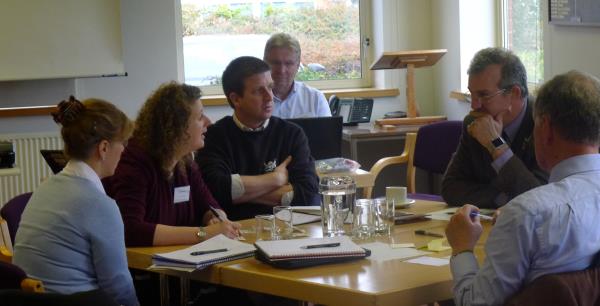The Environment Agency is currently reviewing the services it provides to farmers and other users who are licensed to abstract or impound water.
In particular it is investigating if and how new digital services could be used to create a speedier and more efficient administrative process.
A recent Agency workshop hosted by the NFU at its East Anglia regional base in Newmarket gave farmers and growers the opportunity to explore the opportunities and pitfalls of a different approach to recording and disseminating water use.
In terms of future access to online services, there was a high level of farmer support for the licence application process to be conducted online. Most NFU members also liked the idea of online account management.
And despite understandable hesitation about confidentiality issues associated with the internet, a high level of farmers were interested in opportunities to pay fees and charges, and to trade water, online.
But farmers expressed their concerns about the installation of ‘smart meters’ on farms which might be necessary as part of government’s long term abstraction reform proposals.
Paul Hammett, NFU national water specialist, agreed that the collection of water usage data is important but said that the administrative system must be sympathetic to practical issues on farms, where growers might be frequently moving many metered pumps and irrigation rigs between different water sources.
‘Smart meters will help the Environment Agency to track water usage on a daily basis but we are worried about the cost and complexities of a mass meter replacement exercise that may exceed its modest benefits’, he said.
In general, farmers attending the NFU meeting were keen on the use of information technology, including social media, to speed up communication between regulator and farm.
‘We are particularly keen on the Agency finding ways to transmit information on current and impending abstraction restrictions during dry spells to help better water scheduling’, said Mr Hammett.
‘And if in future the ambition is to manage water more collectively at the catchment scale, then farmers should be thinking about installing their own local river level monitoring points which, if fed into the Agency’s own monitoring system, could improve the data on which decisions are taken in times of drought’.
